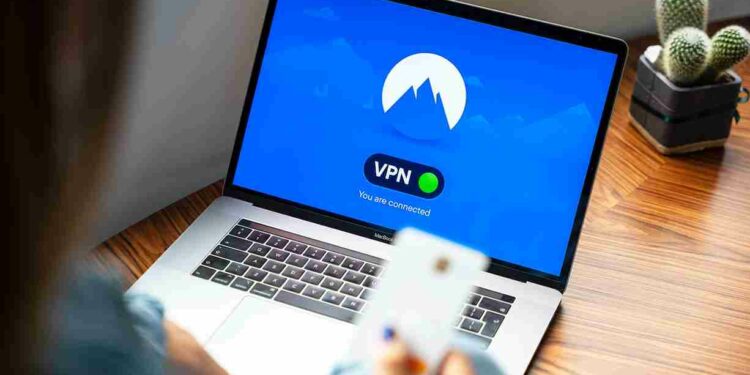Browsing the Internet has become an essential part of our daily activities; individuals and corporate bodies need insightful information from the web for transactions, especially now that most businesses are online.
Unfortunately, the more you browse the web, the higher the risks of cyberattacks, considering that we have up to 26,000 cyberattacks daily and 18 cyberattacks per minute.
To worsen the situation, less-skilled threat actors can now leverage ChatGPT to generate codes that enable them to launch attacks with little effort and can use email spy pixels to track your location and browsing history.
Some people resort to private browsing mode to mitigate cyberattacks, but that is not enough; once a hacker or a third party can get your internet protocol (IP) address, you are at high risk.
You will still need your internet service provider (ISP) to assign an IP address for private browsing.
Accessing your IP address is an entry point for hackers to get access into your network for nefarious activities. Since your ISP provides the connection you need to browse the net, your web traffic must pass through your ISP’s servers; they can track your online activities through your IP address.
To ensure maximum security while browsing the net, you need a good free VPN to complement your comprehensive antivirus software. A good free VPN has attributes such as:
- Enhancing VPN changer – an app that allows your free VPN to change the location of a specific device. VPN changers play a vital role in increasing security. However, changing the VPN location may take a long time when you do so manually; your best option is to download an app or choose settings that help enhance default features.
- Encryption of IP address – The fundamental task of a free VPN is to hide your IP address from your internet service provider and other prying eyes. You should send and receive data online without the risk of a third party or an intruder accessing it.
- Encryption of logs – A third party can track your internet or search history from the trails you leave while browsing the net; encryption of data ensures that even if your sensitive information, such as personal details, passwords, and financial information, falls into the wrong hands, they will be gibberish since the third party can’t decipher the encryption.
- Kill switch – Your VPN connection can experience a sudden drop, leading to an unexpected downtime; a good free VPN will quickly detect this sudden downtime and abort preselected programs; data compromise can hurt you, your clients, and your organization; you must embrace every chance to reduce data compromise incidents.
- Multifactor authentication – Unwanted third parties should not easily access your connection; a good free VPN must verify the identity of anyone trying to log in by insisting on a wide range of authentications. For instance, you may need to enter a password, after which it sends a code to your mobile device for verification.
Using a VPN does not mean you can’t still be at risk of Trojans, Bots, Malware, Spyware, or Viruses; complementing your VPN with antivirus software will do the magic. Antivirus software is a program or set of programs that searches for, detects, prevents, and eliminates software viruses, such as worms, trojans, spyware, bots, and malware.
Table of Contents
Why do you need antivirus software?
There is the possibility that your computer gets infected within minutes of you connecting to the internet; antivirus software will enhance your protection from infection. Threat actors create and constantly bombard your computer with spyware, bots, trojans, worms, and malware; antivirus companies regularly update detection tools to ensure your protection from any new malware threat actors create daily.
As organizations deploy emerging technologies to upgrade business processes, threat actors improve their acts to ensure that computer viruses beat detection by definition-based antivirus tools, damage your device, prevent you from accessing your data, or take complete control of your network.
What does antivirus software do?
There are different shades and forms of antivirus software; however, they fundamentally work towards the following goals:
- You can scan a specific file or directory for any malware or known malicious patterns
- Enable the automation of scheduled scans
- Enhance real-time scanning of a particular file, PC, CD, or flash drive.
- Automation of programs enables the software to remove any detected malicious code, notify you of an infection, and ask if you want to clean the file; while carrying out the task behind the scenes.
- Display the ‘health status of your computer.
How antivirus software complement VPNs
VPNs change your location, encrypt your IP address, enable multifactor authentication, kill switch, and encrypt your data; antivirus tools protect more than PCs and other mobile devices.
You need to save all your vital documents from destruction by malware; antivirus tools will go all the way to detect, block, and remove viruses, malware, and ransomware.
The antivirus tools will prevent identity theft, block phishing, scan the Dark Web to identify compromises in email addresses, and warn you about fraud and clicking dangerous websites.
The antivirus software complements your free VPN in securing password encryption and ensuring your computer runs optimally.
Conclusion
The free VPN location change is an evolution in technology that comes with no financial burden to the organization, confuses threat actors about your base – where you are browsing from; it keeps them guessing and protects you partially from attacks.
You must ensure the complete protection of your clients and your organization; the main business of threat actors is to infiltrate your network and cause harm; they dedicate enough time for this; they can still locate you.
You must ensure that even when they access your VPN location, your antivirus software will keep your data safe.



















